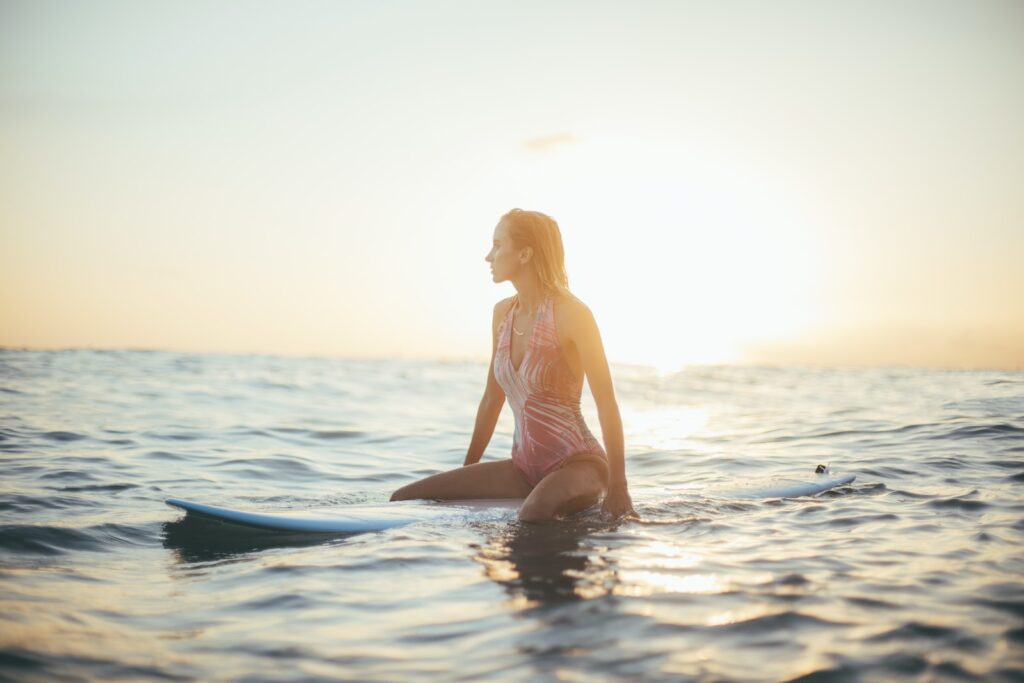As a surfer, knowing the best tide for surfing is crucial to catch the perfect wave. Tides can make or break a surfing session, so understanding how they affect your surfing experience is essential. In this article, I will guide you through the world of surfing tides and help you discover the best tides to surf.
Tides are the rise and fall of sea levels caused by the gravitational pull of the moon and the sun. As the water moves, it creates waves that surfers ride. Surfing tides refer to the level of water in the ocean and how it affects the waves.

Understanding How Tides Affect Surfing
Tides affect surfing by changing the shape, size, and power of the waves. During high tide, the water level is higher, and waves are typically closer to the shore, making them easier to catch. During low tide, the water level is lower, and the waves are further out, making it more challenging to catch them.
The direction of the tide also affects the waves. A rising tide pushes the waves towards the shore, creating more powerful waves, while a falling tide pulls the waves back out to sea, creating smaller waves.
The Best Tides for Surfing – High Tide or Low Tide?
The best tide for surfing depends on the surfer’s skill level and the type of wave they want to ride. High tide is generally better for beginners as the waves are closer to the shore and easier to catch. The waves are also more powerful during high tide, making it easier to generate speed and perform maneuvers.
Advanced surfers prefer low tide as the waves are further out, making it more challenging to catch them. However, the waves are typically more consistent during low tide, and the shape of the waves is more defined, making it easier to perform tricks.
Factors to Consider When Choosing the Best Tide for Surfing
When choosing the best tide for surfing, there are several factors to consider. Firstly, the type of wave you want to ride. If you’re looking for powerful waves, high tide is the best choice. If you want consistent waves with defined shapes, low tide is the way to go.
Secondly, consider your skill level. If you’re a beginner, high tide is the best option as the waves are closer to the shore and easier to catch. Advanced surfers may prefer low tide as it presents a greater challenge.
Finally, check the weather conditions. Strong winds can affect the size and shape of the waves, so it’s essential to choose a tide that complements the weather conditions.
Surfing Tides Around the World
Surfing tides vary around the world due to the shape of the coastline and the direction of the prevailing winds. In Hawaii, for example, the best tides for surfing are during low tide as the shape of the waves is more defined, allowing surfers to perform tricks. In Australia, high tide is the best option as the waves are more powerful and closer to the shore.
How to Check the Tides Before You Surf
Checking the tides before you surf is essential to ensure you catch the best waves. You can check the tides using a tide chart, which provides information on the water level throughout the day. Many surf shops and websites offer tide charts for free.
It’s also a good idea to check the weather forecast as it can affect the size and shape of the waves. Look for calm winds and clear skies for optimal surfing conditions.
Surfing During Changing Tides
Surfing during changing tides can be challenging as the shape and size of the waves are constantly changing. It’s essential to be aware of the tide direction and adjust your positioning accordingly. During rising tide, move closer to the shore to catch the waves, while during falling tide, move further out to sea.
Tips for Surfing at Different Tide Levels
When surfing during high tide, position yourself closer to the shore to catch the waves as they break. Paddle hard and quickly pop up to generate speed and perform maneuvers.
During low tide, position yourself further out to sea to catch the waves as they approach. Be patient and wait for the perfect wave to ride, as the waves are further apart during low tide.
Best Surfing Spots for Different Tides
Some of the world’s best surfing spots have different tides that affect the waves’ shape and size. In Hawaii, Waimea Bay is best during low tide, while the Banzai Pipeline is better during high tide. In California, Malibu is best during low tide, while Huntington Beach is better during high tide.
Conclusion
Surfing tides play a crucial role in determining the quality of your surfing experience. Understanding how tides affect the waves and choosing the best tide for your skill level and wave preference is essential. With this guide, you can now confidently ride the waves like a pro and discover the best tides for surfing.
FAQs
Read these next:
How useful was this post?
Click on a star to rate it!
Average rating 0 / 5. Vote count: 0
No votes so far! Be the first to rate this post.

